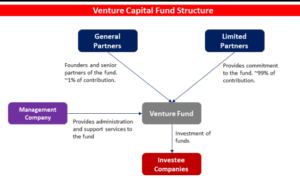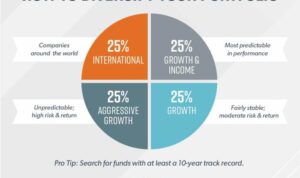Diving into the world of wealth preservation, this introduction sets the stage for an exciting journey into strategies and tools that can safeguard your assets and ensure a prosperous financial future. From navigating economic downturns to securing intergenerational wealth transfer, the importance of preserving wealth cannot be overstated. Get ready to explore the key concepts and strategies in a way that’s both informative and engaging.
As we delve deeper into the various aspects of wealth preservation, you’ll uncover the secrets to protecting your hard-earned wealth and setting yourself up for success in the long run.
Importance of Wealth Preservation
Preserving wealth is crucial for long-term financial security. By implementing effective wealth preservation strategies, individuals can safeguard their assets during economic downturns and ensure a stable financial future.
Protecting Assets During Economic Downturns
Wealth preservation strategies such as diversifying investments, maintaining an emergency fund, and minimizing debt can help protect assets during challenging economic times. Diversification spreads risk across different asset classes, reducing the impact of market fluctuations on overall wealth. An emergency fund provides a financial buffer to cover unexpected expenses without having to dip into long-term investments. Minimizing debt reduces financial vulnerability and ensures that assets are not at risk of being seized in case of financial difficulties.
Intergenerational Wealth Transfer
Wealth preservation plays a vital role in ensuring the successful transfer of assets across generations. By establishing trusts, creating estate plans, and implementing tax-efficient strategies, individuals can protect their wealth and pass it on to their heirs in a seamless manner. Effective wealth preservation measures can help minimize estate taxes, avoid probate delays, and ensure that future generations benefit from the hard-earned wealth accumulated over time.
Strategies for Wealth Preservation

When it comes to preserving wealth, it’s crucial to have a solid plan in place. This involves utilizing different investment options, tax planning, and asset protection trusts to safeguard your assets for the long term.
Diversification and Risk Management
One key strategy for wealth preservation is diversifying your investment portfolio. By spreading your investments across different asset classes, industries, and geographic regions, you can reduce the risk of significant losses. This helps protect your wealth from market volatility and economic downturns.
Tax Planning
Another important aspect of wealth preservation is tax planning. By strategically managing your tax liabilities, you can minimize the amount of taxes you owe and maximize your after-tax returns. This may involve utilizing tax-advantaged accounts, tax-efficient investment strategies, and taking advantage of deductions and credits.
Asset Protection Trusts
Asset protection trusts play a crucial role in preserving wealth by shielding your assets from creditors, lawsuits, and other potential threats. These trusts are designed to hold and protect your assets for the benefit of your beneficiaries while keeping them out of reach of creditors. By setting up an asset protection trust, you can ensure that your wealth is safeguarded for future generations.
Real Estate as a Wealth Preservation Tool
Investing in real estate can be a powerful method for wealth preservation. Real estate assets have a unique ability to appreciate over time, providing a hedge against inflation and economic downturns. Additionally, rental income from real estate properties can generate a steady cash flow, further enhancing the overall wealth preservation strategy.
Benefits of Owning Real Estate Assets
- Appreciation: Real estate properties have the potential to increase in value over time, allowing investors to build wealth through capital appreciation.
- Income Generation: Rental income from real estate properties can provide a reliable source of cash flow, helping to protect wealth and cover expenses.
- Diversification: Real estate investments offer diversification benefits, reducing overall portfolio risk and increasing stability in times of market volatility.
Risks and Challenges of Using Real Estate for Wealth Preservation
- Market Volatility: Real estate markets can be subject to fluctuations, impacting property values and rental rates.
- Liquidity Constraints: Real estate assets are not as liquid as other investment options, making it challenging to quickly access funds in times of need.
- Maintenance Costs: Owning real estate properties comes with ongoing maintenance and repair expenses, which can eat into profits and affect overall wealth preservation goals.
Wealth Preservation through Insurance
Insurance plays a crucial role in wealth preservation by providing protection against unforeseen financial risks. Let’s explore how insurance products, such as life insurance and property insurance, can help safeguard your assets and ensure long-term financial security.
Life Insurance
Life insurance is a key component of wealth preservation as it offers a financial safety net for your loved ones in the event of your untimely death. By paying regular premiums, you can ensure that your beneficiaries receive a lump sum payout (death benefit) to cover expenses such as mortgage payments, education costs, and daily living expenses.
- Life insurance can help preserve your wealth by replacing lost income and maintaining your family’s standard of living.
- It provides peace of mind knowing that your loved ones will be financially secure even after you’re gone.
- Regularly reviewing and updating your life insurance coverage is essential to ensure it aligns with your current financial situation and goals.
Life insurance is not just about protecting your assets; it’s about securing your family’s future.
Property Insurance
Property insurance, including homeowners and renters insurance, is another vital tool for wealth preservation. It helps protect your real estate assets from damage or loss due to events like fire, theft, or natural disasters. By paying premiums, you can ensure that your property is adequately covered in case of emergencies.
- Property insurance safeguards your investment in real estate and provides financial protection against unexpected property damage.
- It helps minimize the financial impact of repairs or replacements, preserving your wealth in the long run.
- Regularly reviewing and updating your property insurance policy is crucial to ensure that your coverage reflects the current value of your property and any renovations or improvements made.
Property insurance is a fundamental aspect of wealth preservation, ensuring that your real estate assets are shielded from potential risks.






